Here goes some OOP. You have Player class. Which stores some info - amount of gold he has, chests left to open, and total amount of gold in chests he will find.
public class Player
{
private int gold = 0;
private int goldLeftInChests = 85000000;
private int chestsToOpen = 10000;
private Random random = new Random();
public void OpenChest()
{
if (chestsToOpen == 0)
return; // or whatever you want after 10000 chests.
int goldInChest = CalculateGoldInNextChest();
goldLeftInChests -= goldInChest;
chestsToOpen--;
gold += goldInChest;
}
private int CalculateGoldInNextChest()
{
if (chestsToOpen == 1)
return goldLeftInChests;
var average = goldLeftInChests / chestsToOpen;
return random.Next(average);
}
}
When next chest is opened, gold in chest is calculated and player data ajusted - we add some gold to player and reduce total amount of gold in chests, and chests left to open.
Calculating gold in a chest is very simple. We get average amount left and calculate number between 1 and average. First time this value will always be below 8500. But next time average will be little bit bigger. So player will have chance to find more than 8500. If he will be unlucky again, average will grow. Or it will be reduced if palyer gets lot of gold.
UPDATE: As @Hans pointed, I didn't count min and max restrictions for gold in chests. Also there is a problem in @Hans solution - you should move gold between 10000 chests lot of time to get some chests close to 250000 value. And you have to fill and keep all 10000 values. Next problem I thought about was random numbers distribution in .NET. Values have equal probability on all interval we are using. So if we are generating value from 2500 to 250000, chance that we'll get value around 8500 (average) is like 12000 (8500±6000) vs 235500 (250000-12000-2500). That means generating default random numbers from given range will give you lot of big numbers in the begining, and then you will stick near lowest boundary (2500). So you need random numbers with different distribution - Gaussian variables. We still want to have 8500 gold with highest probablity, and 250000 with lowest probability. Something like that:

And last part - calculation. We need to update only one method :)
private int CalculateGoldInNextChest()
{
const int mean = 8500;
var goldPerChestRange = new Range(2500, 250000);
var averageRange = new Range(mean - 2500, mean + 2500);
if (chestsToOpen == 1)
return goldLeftInChests;
do
{
int goldInChest = (int)random.NextGaussian(mu: mean, sigma: 50000);
int averageLeft = (goldLeftInChests - goldInChest) / (chestsToOpen - 1);
if (goldPerChestRange.Contains(goldInChest) && averageRange.Contains(averageLeft))
return goldInChest;
}
while (true);
}
Note: I used range to make code more readable. Running tests several times produces nice top values more than 200000.
